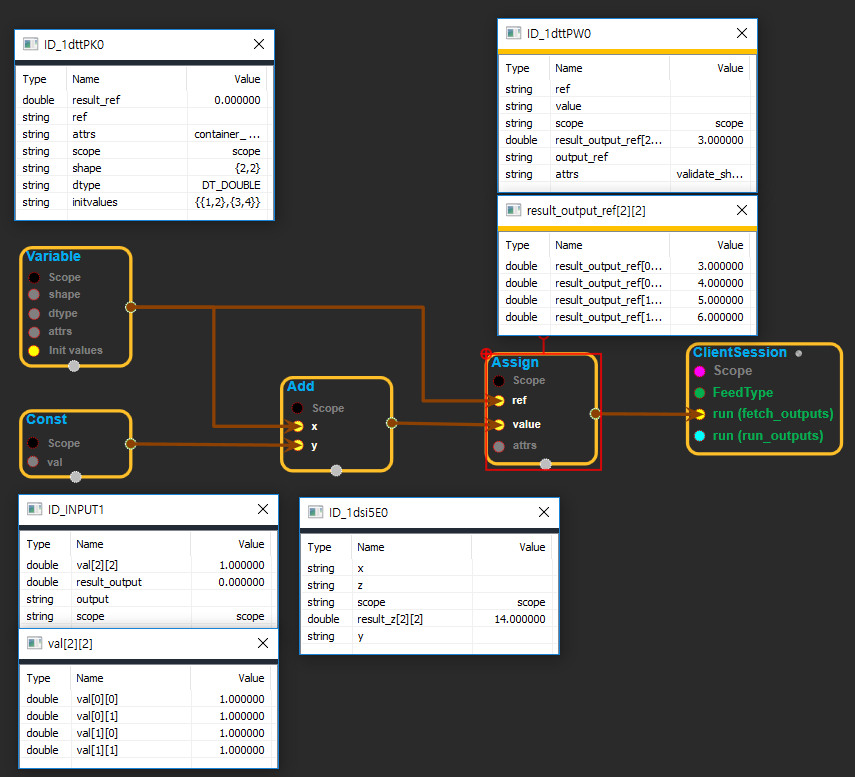Variable
tensorflow C++ API
Holds state in the form of a tensor that persists across steps.
Summary
Outputs a ref to the tensor state so it may be read or modified. TODO(zhifengc/mrry): Adds a pointer to a more detail document about sharing states in tensorflow.
Arguments:
- scope: A Scope object
- shape: The shape of the variable tensor.
- dtype: The type of elements in the variable tensor.
Optional attributes (see Attrs):
- container: If non-empty, this variable is placed in the given container. Otherwise, a default container is used.
- shared_name: If non-empty, this variable is named in the given bucket with this shared_name. Otherwise, the node name is used instead.
Returns:
Output: A reference to the variable tensor.
Variable block
Source link : https://github.com/EXPNUNI/enuSpaceTensorflow/blob/master/enuSpaceTensorflow/tf_state.cpp
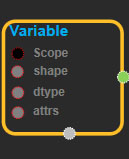
Argument:
- Scope scope : A Scope object (A scope is generated automatically each page. A scope is not connected.)
PartialTensorShapeshape: Input shape in value. ex)shape[1] =>8DataTypedtype: input dtype in value. ex)DT_INT32;- Variable::Attrs attrs : Input attrs in value. ex)var_name_ =AB;
Return:
- Output output : Output object of Variable class object.
Result:
- std::vector(Tensor) product_result : Returned object of executed result by calling session.
Using Method
Variable 객체 설정 방법
- dtype의 값을 입력 dtype = DT_FLOAT, shape = {1,1}, initvalues = {{0.0f}}를 입력하여 생성
- initvalues의 modify shape 수행, 변수 타입설정 "int, bool, float, double, string" 개별 배열의 값 설정 (주. shape, dtype의 값은 어떠한 문자열도 입력하지 않아야 함)
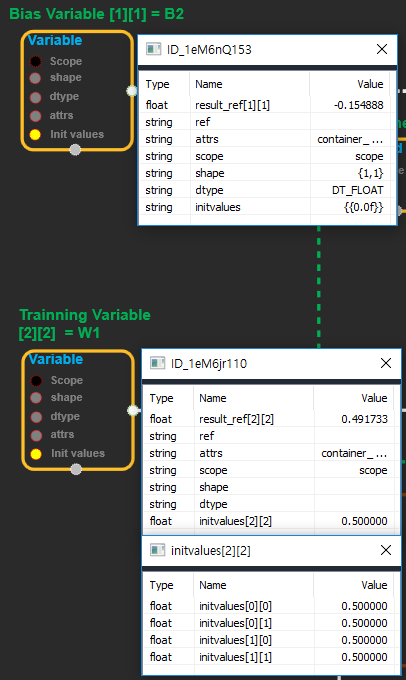
Variable 객체는 Assign과 함께 사용하여 동작을 수행함.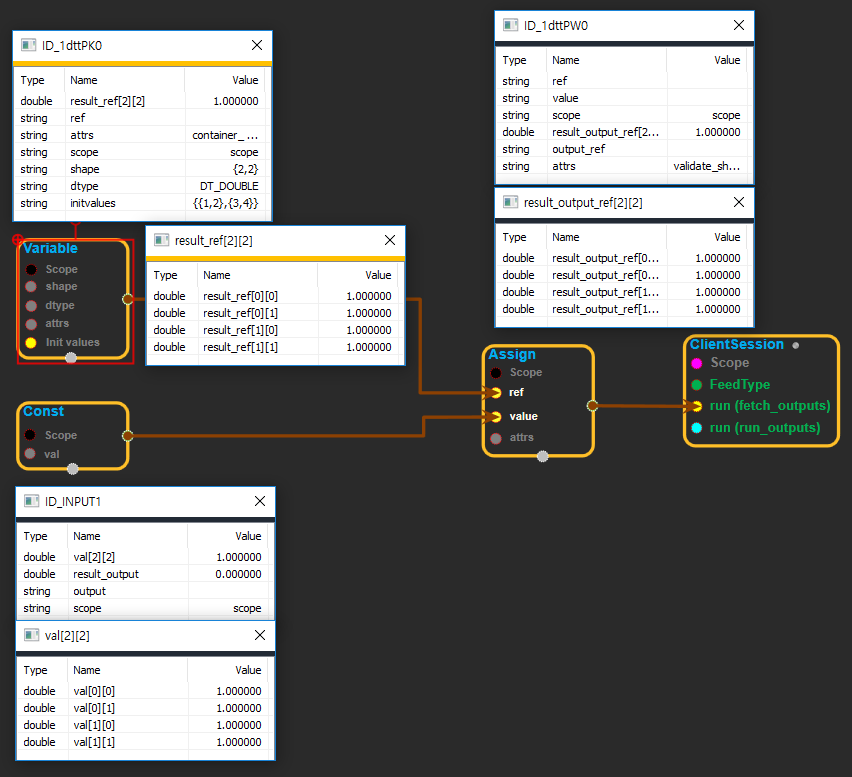
Variable 객체의 초기화는 상수객체를 연결하거나 initvalues의 입력으로 설정을 수행.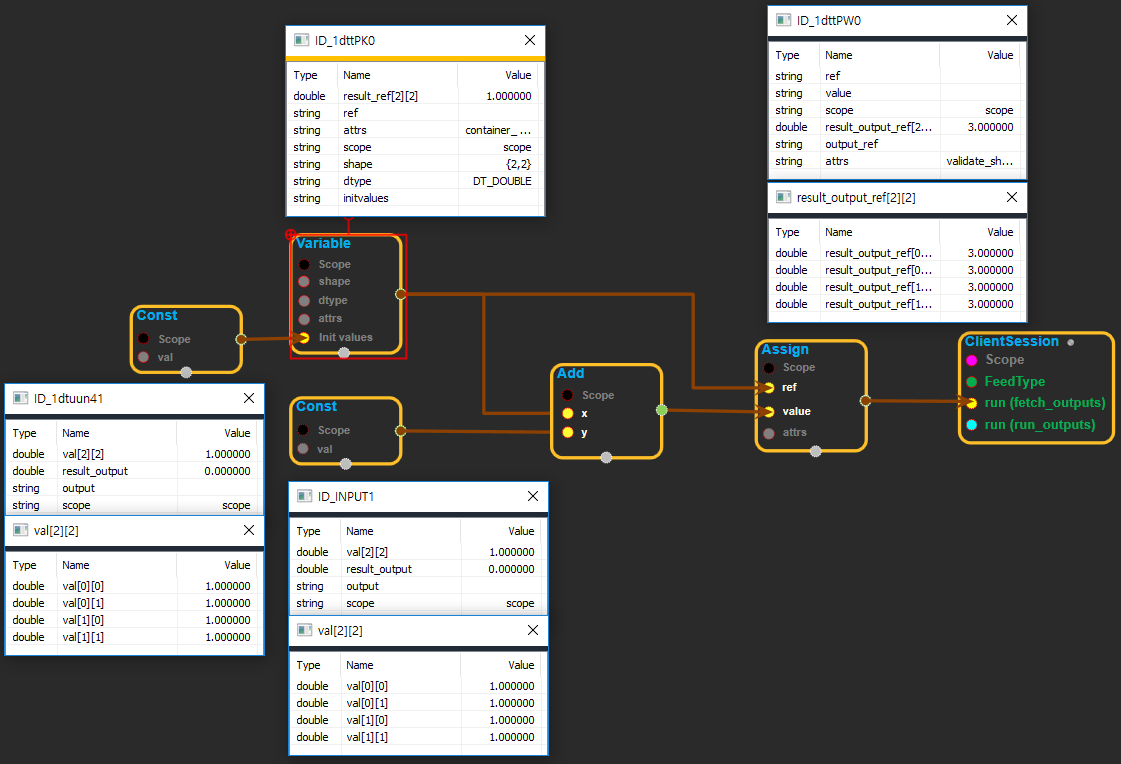
Output 객체 Add를 활용한 Feedback 샘플